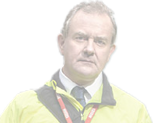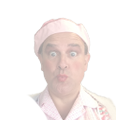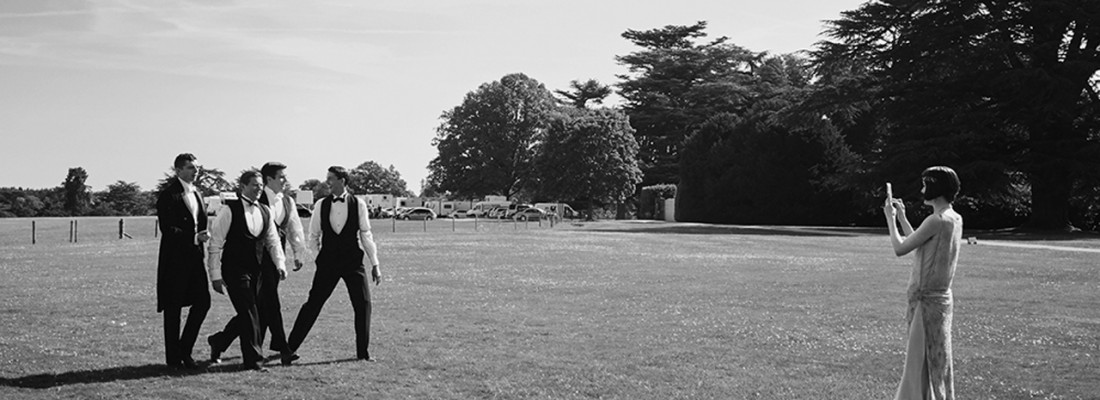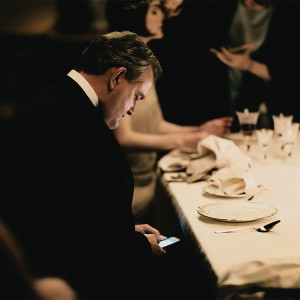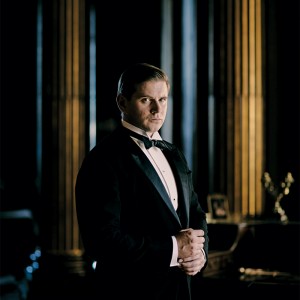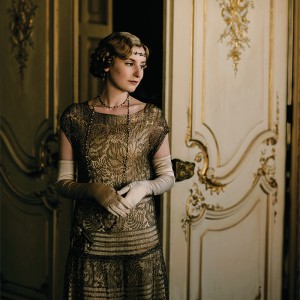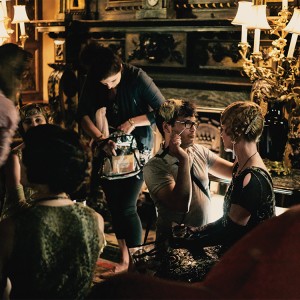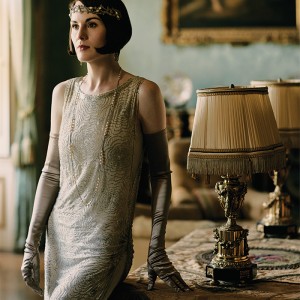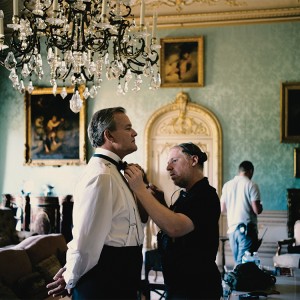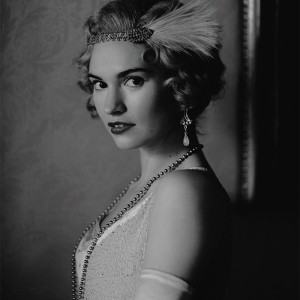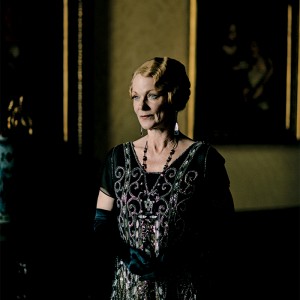Article by Steve Clarke & Debra Birnbaum for Variety
It is a hot, humid day in rural Hampshire, England, in high summer. Inside Highclere Castle, the mock-Gothic Victorian estate that gives spectacular views over the surrounding countryside, preparations for a Yorkshire Christmas are underway. The fire is lit; elaborate floral displays are arranged on the staircase and in the sitting room where the Crawley family will gather for the festive celebrations. And a makeup artist wearing shorts and sunglasses is touching up the Countess of Grantham’s face.
The year is 1925, but the 21st century keeps intruding on the set of “Downton Abbey,” the now-iconic show created by Julian Fellowes that gave TV executives the confidence to reinvest in period drama.
There is an end-of-semester atmosphere as cast and crew go about their work on the series’ sixth and final season. The sister and elderly father of Hugh Bonneville (aka Robert, Earl of Grantham) are visiting the set. So, too, is a chilled-out Phyllis Logan (Mrs. Hughes), dressed down for the day in summer casual wear.
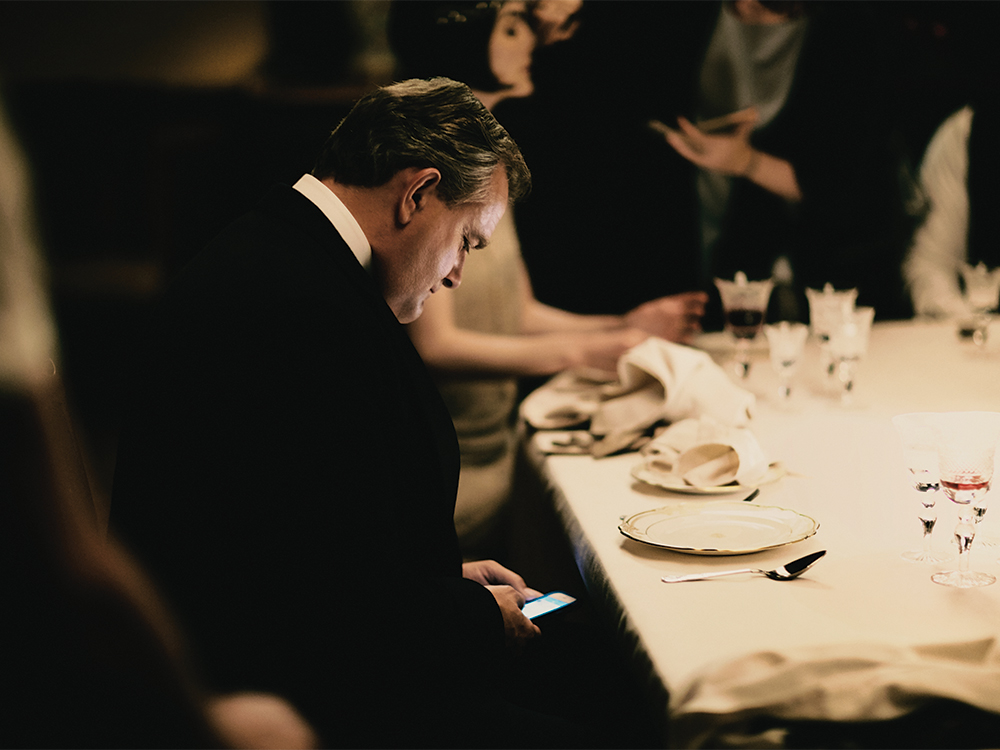
“I’ve had my own issues in the past as a character,” says Hugh Bonneville (Lord Robert Crawley). “But it’s safe to say this season, Cora (Elizabeth McGovern) and I are good as a team as a whole.”
Adding to the convivial vibe is a gaggle of fans, one of whom bid £2,000 ($3,000) in a charity auction to spend a day with the stars.
The pressure is off: “Downton Abbey” has nothing to prove any more.
“People were writing off the show before it even came out,” recalls Bonneville. “Costume drama was dead. No one knew who we were. No one wanted to interview us. No one wanted to promote the show. And then it suddenly struck.”
The series debuted to record ratings that climbed each year, and it went on to become an international phenomenon, airing in 250 territories worldwide, and earning shelves of awards.
“We treated all the characters (no matter their class) as having equal weight in terms of their human experience,” says Fellowes. “We never suggested that Lady Mary’s love for Matthew was more important than Anna’s love for Bates. I think that was right for the modern zeitgeist.”
The show’s final season bows in the U.S. on PBS’ “Masterpiece” on Jan. 3 (the finale airs in the U.K. on Christmas Day). There are rumors of a “Downton” movie, but nothing’s been confirmed.
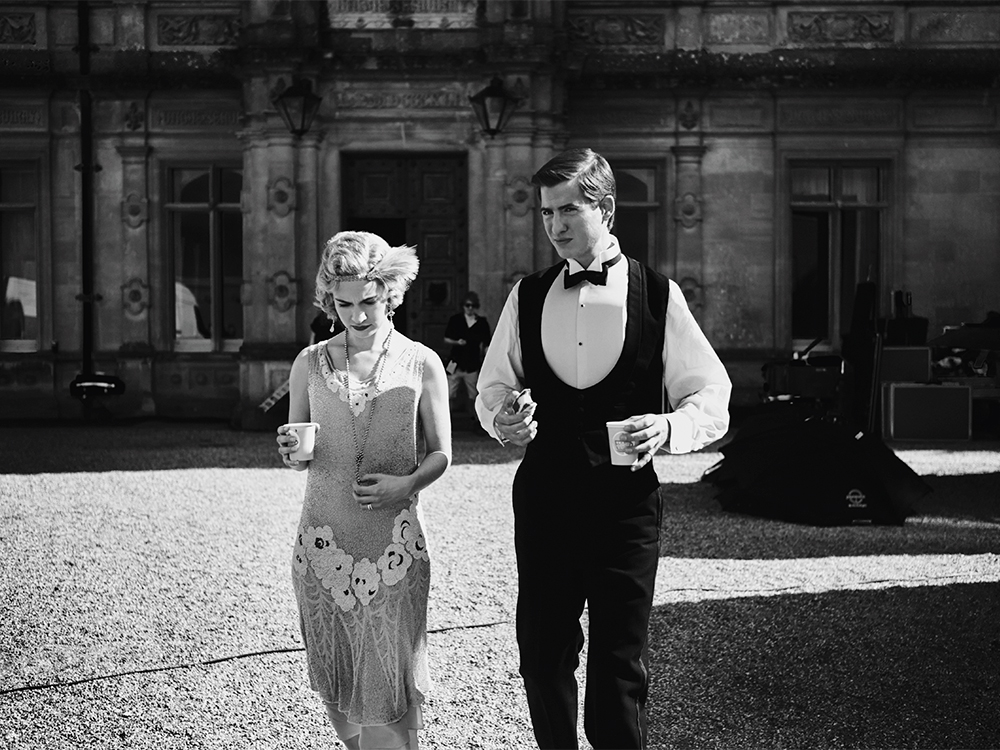
Julian Fellowes calls this a season of resolution. “The family (including Rose and her husband Atticus, played by Matt Barber) will have to reinvent itself if it is to move forward into the new world,” he says.
“For me, it feels like ‘Downton’s come to its natural end,” says Elizabeth McGovern, who plays Cora, the Countess of Grantham. “I feel proud and privileged to have been a part of it.”
While fans were shocked by the announcement back in March that the show would be ending, the news didn’t come as a surprise to the cast. “We knew six would be it,” says Joanne Froggatt (Anna).
But that final goodbye didn’t come easily. “The last day at Highclere was a big day,” says Michelle Dockery (Lady Mary). “Laura (Carmichael) and I walked hand-in-hand through the house, and went through all the rooms crying. Bawling. We didn’t expect to.”
Carmichael, who plays Lady Edith, echoes that sentiment in an interview after production wrapped: “In one second of them yelling, ‘Cut!’ it stopped being our house. In some silly way, it had been for six years of our lives. It felt like our lawn. And then it wasn’t.”
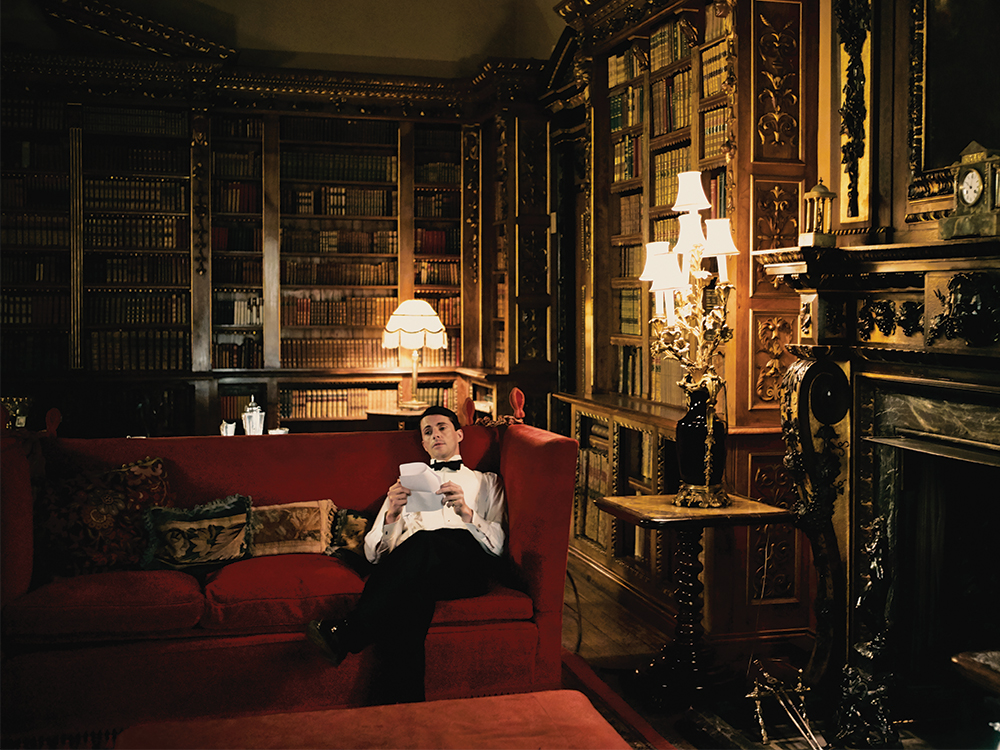
Matthew Goode returns as Lady Mary Crawley’s suitor, Henry Talbot. “Mary’s in business mode at the beginning,” says thesp Michelle Dockery. “Her love life is pretty quiet. And then Henry Talbot shows up. It’s an interesting dance.”
On this rare, perfect English summer’s day, the challenge is staying cool and out of the sun during breaks. An impromptu “green room” erected on the lawn provides shade for the actors. To help pass the time, some of the male cast members loosen their white ties and play boules, the French form of bocce.
In Highclere’s library, home to 5,650 books dating from the 16th century, the curtains have been drawn against the dazzling sunlight, with a nighttime scene being staged.
Director Michael Engler, the only American member of an otherwise all-British crew, is setting up for a shot. Bonneville, dressed immaculately in a dinner suit, is waiting patiently for filming to begin. Down the hall in the state dining room, dominated by van Dyck’s towering portrait of Charles I, actor Peter Egan (Shrimpie), clad in a heavy tweed suit, sprawls on a chair, catching up on his email.
A crew member suggests Egan move to the library so he can get used to the subdued light. “Have you got a guide dog?” he banters.
For a British TV drama, the cast of “Downton Abbey” is relatively large — the core members number 26. The set pieces are extravagant, and no expense is spared.
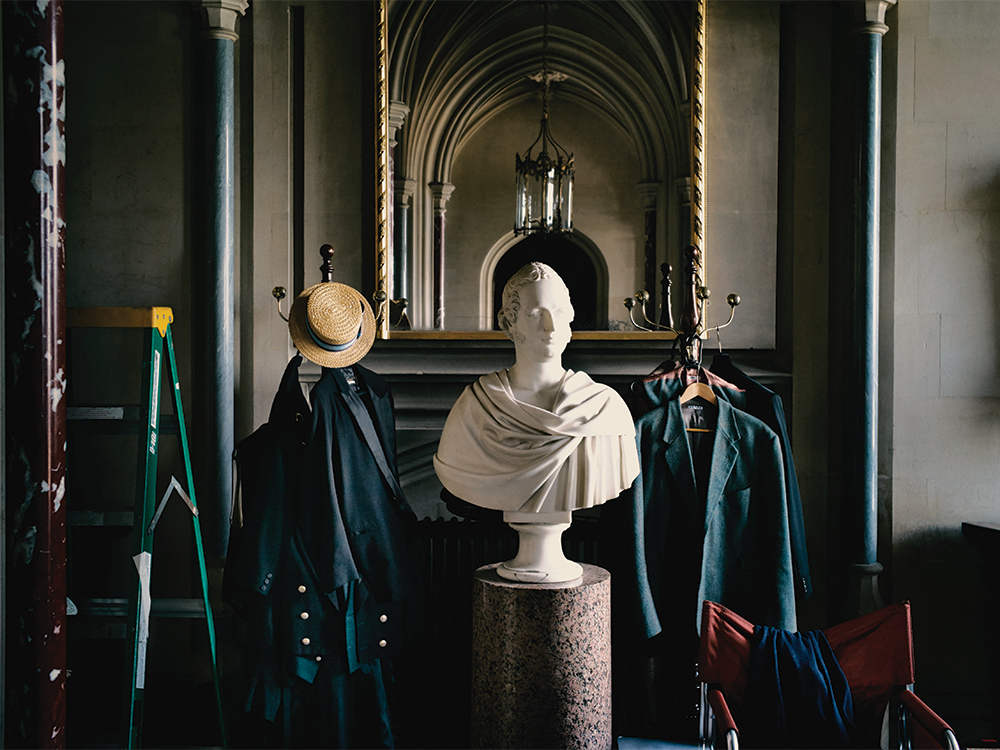
The production is famous for its meticulous attention to detail, from the clothes the cast wears to the props on set.
Says Engler (“The Big C,” “Party of Five”), who joined “Downton” in the fifth season after a chance encounter with executive producer Liz Trubridge: “I imagined it would be another well-done British period drama like so many other well-done British period dramas, but when I started to watch it, I realized this was something completely different. There’s an authenticity and a layered psychology rare in any kind of writing — film, TV or theater. It is an English country-house period drama, but it completely transcends the genre. Nothing is ever taken for granted.”
In this final season, the Crawleys must face the changing times. New taxation and employment laws have made it more difficult to keep country estates like Downton together, and the family must think creatively to avoid financial ruin.
“Romantic love plays an even more significant role than I expected when we first embarked on it, and it has become one of the principal forces driving the series,” says executive producer Gareth Neame. “And romantic stories require resolution.”
As their wedding day draws closer, Carson (Jim Carter) and Mrs. Hughes face some awkward if humorous negotiations. The ever-present rivalry between Lady Mary and Lady Edith intensifies. “Just when I thought Julian has written as much as I thought possible for a character, he surprises us,” Dockery says.
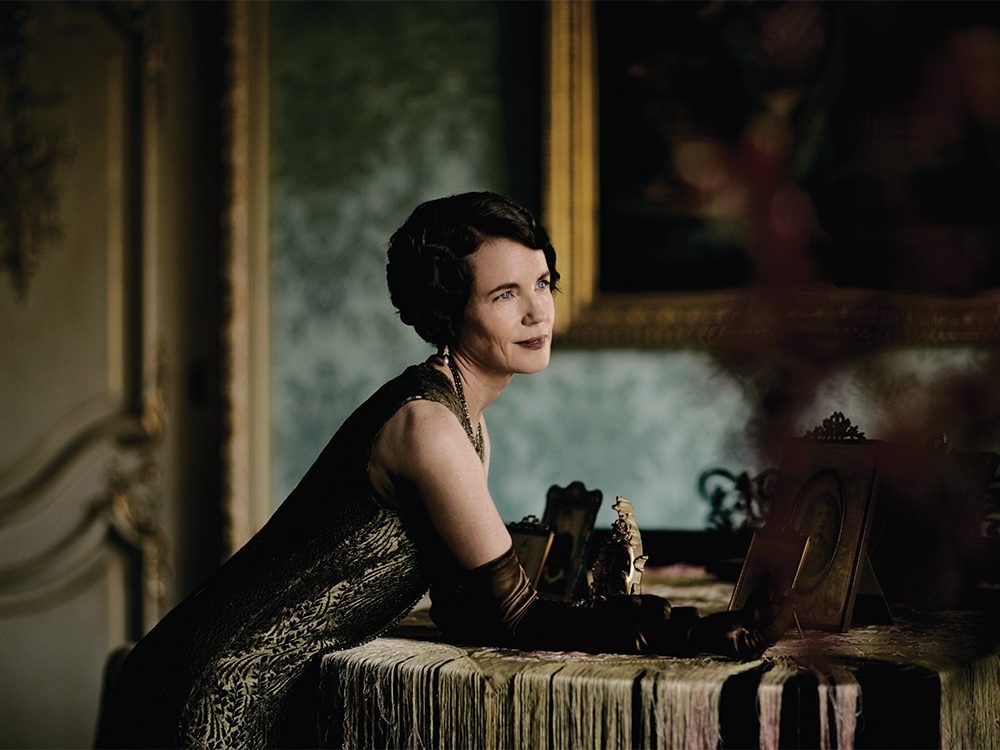
“Cora’s finding herself as an independent woman,” says Elizabeth McGovern. “She’s becoming more forthright and pursuing her own interests with more confidence.”
The long-suffering Bates (Brendan Coyle) and Anna will face their usual trials and tribulations, warns Froggatt. “It’s not straightforward for Anna and Bates; it never is,” she says. “There is some happiness there, but it’s not easily attained.”
That emotional roller coaster is par for the course on “Downton Abbey.”
“Although I think a lot of the audience wants certain characters to pair up, that isn’t the way it’s going to be,” Trubridge says. “We have to do what we feel is right, and the audience will either love or loathe us for that.”
As for the final episode itself, “I got a lump in my throat reading it,” Bonneville says. “It’s a two-hanky job. But that was as much because I realized it was the last time I was going to be reading one of these scripts.”




